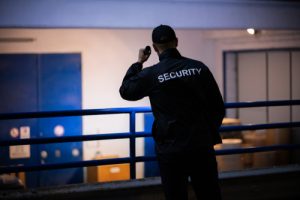 Key Responsibilities of Security Roles: Safeguarding People and Property
Key Responsibilities of Security Roles: Safeguarding People and Property
The security industry is responsible for protecting people and property. Security roles can vary from entry-level security personnel to more specialized roles, such as cybersecurity. Regardless of the role, security personnel share the responsibility of safeguarding people and property. In this blog post, we’ll discuss the key responsibilities of security roles.
1. Prevention of Crime
One of the primary responsibilities of security personnel is to maintain a safe and secure environment by preventing criminal activity. This involves conducting regular security checks, monitoring surveillance systems, and patrolling the premises. By being proactive in identifying and addressing potential security breaches, they can prevent crime before it occurs.
2. Control Access
Security personnel are responsible for controlling access to buildings, facilities and certain areas within those buildings and facilities. This involves screening visitors, checking identification, and issuing security passes. Additionally, they must monitor doors, windows, and other points of entry for unauthorized access.
3. Emergency Response
Security personnel must be trained in emergency response procedures and be prepared to act quickly in the event of an emergency. This includes responding to alarms, evacuating buildings, and communicating with law enforcement and emergency services. By being trained and prepared, they can minimize the risk of loss of life and property during an emergency.
4. Crowd Control
At events or in large public areas, security personnel are responsible for maintaining order and controlling crowds. This involves managing lines, directing foot traffic, and ensuring that individuals do not exceed capacity limits. By maintaining order and preventing overcrowding, they can minimize the risk of accidents and injuries in these situations.
5. Communication
Communication is a critical responsibility of security personnel. Clear and timely communication can prevent potential security breaches and enable a quick response when an incident occurs. They must be able to communicate effectively both verbally and in writing, and use various communication technologies.
6. Investigation
Security personnel are often the first line of investigation when a security breach occurs. This can involve gathering evidence, interviewing witnesses, and taking statements from those involved. By conducting thorough investigations, they can identify the causes of the security breach and take steps to prevent similar incidents in the future.
7. Training
Training is an essential responsibility of security personnel. They must be trained in emergency response, preventive measures, use of self-defense techniques, and relevant laws and regulations. Additionally, they are responsible for training other personnel on proper security measures. By ensuring that all personnel are trained in security procedures, they can minimize the risk of security breaches.
Final Thoughts
The responsibilities of security personnel are broad and critical. They are responsible for maintaining a safe and secure environment, protecting people and property, and ensuring compliance with relevant laws and regulations. Communication, training, and investigation are also essential aspects of their role. It is essential that security personnel are properly trained and equipped to fulfill their responsibilities effectively. By doing so, they can provide a secure environment for individuals, businesses, and communities.